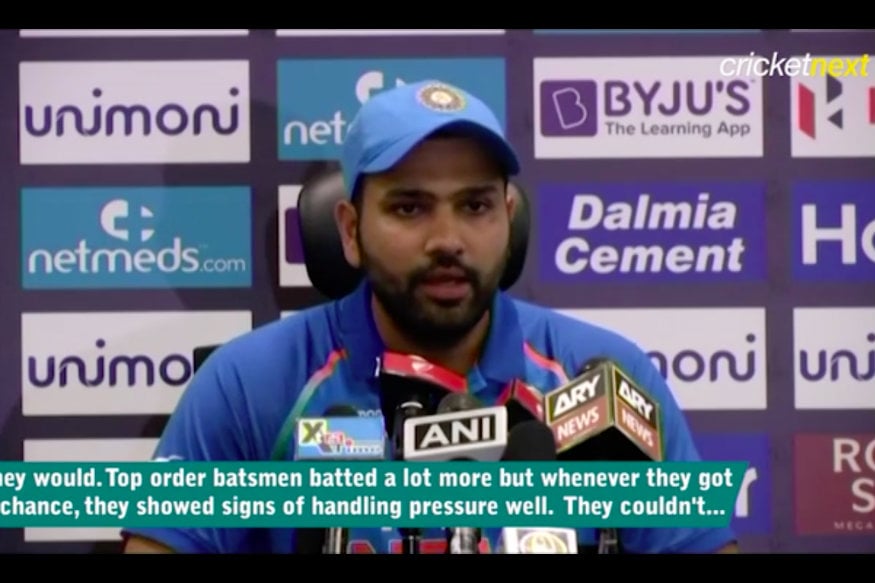
(Screenshot)
Loading...
Uttar Pradesh's left-arm spinner Shiva Singh turned 360 degrees before delivering the ball, which the batsman managed to defend. However, the umpire Vinod Seshan promptly called it a dead-ball, suggesting the bowler was unfairly trying to distract the batsman. Singh - who played the Under-19 World Cup earlier this year - and a few fielders were confused, but Seshan and Ravi Shanker, the square-leg umpire, had discussions with them immediately to explain the reason behind the decision.
Weirdo...!! Have a close look..!! pic.twitter.com/jK6ChzyH2T
— Bishan Bedi (@BishanBedi) November 7, 2018
Was the umpire right in calling it a dead ball? There is no law that deals with this specific kind of 'distraction' or 'strategy'.
However, law 41.2 on Fair and unfair play clearly says umpires have the right to judge whether an action by a player is fair or not.
"The umpires shall be the sole judges of fair and unfair play. If either umpire considers an action, not covered by the Laws, to be unfair he/she shall intervene without appeal and, if the ball is in play, call and signal Dead ball," the law states.
Law 41.19 dealing with 'Unfair actions' too stresses on the above powers with the umpires.
"If an umpire considers that any action by a player, not covered in the Laws, is unfair, he/she shall call and signal Dead ball, if appropriate, as soon as it becomes clear that the call will not disadvantage the non-offending side, and report the matter to the other umpire."
The umpires can then warn the player and the captain, and on subsequent breaches, penalise the team five runs.
Shiva Singh's strategy boiled down to interpretation by the umpires as it was a rare incident. Both the umpires involved in the match refused to comment on the decision.
Simon Taufel, the former ICC Elite Panel umpire, said the umpire was right in his interpretation and said the bowler wasn't being 'fair'.
"The umpire is entitled to call and signal dead ball under Law 20.4.2.1 (unfair play) or 20.4.2.7," he told Cricketnext. "It’s up to the umpire but one would have to ask why the bowler did this and have to assume the only reason would be to distract or put the striker off. Doesn’t seem right or fair to me. If it is his normal bowling action then maybe a different outcome."
'Then why is a batsman allowed to play a switch-hit without notice?' is a common doubt among many. Taufel explained that the difference between the two scenarios is the 'intent' of the player.
"The intent of the reverse action is different," he said. "One is necessary to play the shot the other is not in order to maintain the same mode of delivery."
Taufel added that incidents like these sometimes lead to change in rules, but explained that the discussions are "more so around interpretations of application rather than a specific change".
Another Indian domestic umpire suggested that it could be allowed if Shiva Singh bowled all his deliveries in the same manner.
"If he bowls all balls like that, then he may bowl. But if he bowls only one ball like that, then a dead ball is the right call," the umpire said. "It is a debatable point overall, but in this scenario the umpires did a wonderful job by diffusing the issue in bud by calling a dead ball as it may be distracting the striker.
"If the striker moves out and this happens continuously then there may be an issue of time wasting, so it's best to inform the bowler that this is not acceptable if you do one off. If you bowl all deliveries like that then the umpires may allow.
"The rule is simple. As it is not written anywhere against this (specifically), we have to treat it as a one off incident. We could be getting further clarification from ICC/BCCI, till then this will be followed. Just like with switch hit."
Another umpire, on condition of anonymity, pointed to an incident in the IPL 2016 when Andre Russell tricked Shane Watson in a peculiar fashion. Russell acted like he was pulling out of his run up, leading Shane Watson to ease in his stance. But then Russell resumed his run and delivered the ball, which Watson couldn't even attempt playing.
"This has happened earlier in IPL also, when a bowler used to stop and then bowl," the umpire said indirectly referring to Russell. "In that case it was at the back of the umpire. After that I think there was a ruling and after that he hasn't bowled those type of balls.
"I've not seen anything like this in 20+ years of umpiring. This was something out of the normal. Anything other than normal is unfair Law says if the umpire thinks an action is unfair, he can call a dead ball."
Whether the laws are fair, skewed in the batsman's favour are up for debate. For now, the only think that's black and white is that the final call lies with the umpires.
First Published: November 8, 2018, 12:55 PM IST


 GET APP
GET APP
 Umpires Take Part In BCCI-organised DRS Workshop
Umpires Take Part In BCCI-organised DRS Workshop BCCI to Conduct Re-examination for Umpires After Legal Tangles
BCCI to Conduct Re-examination for Umpires After Legal Tangles




